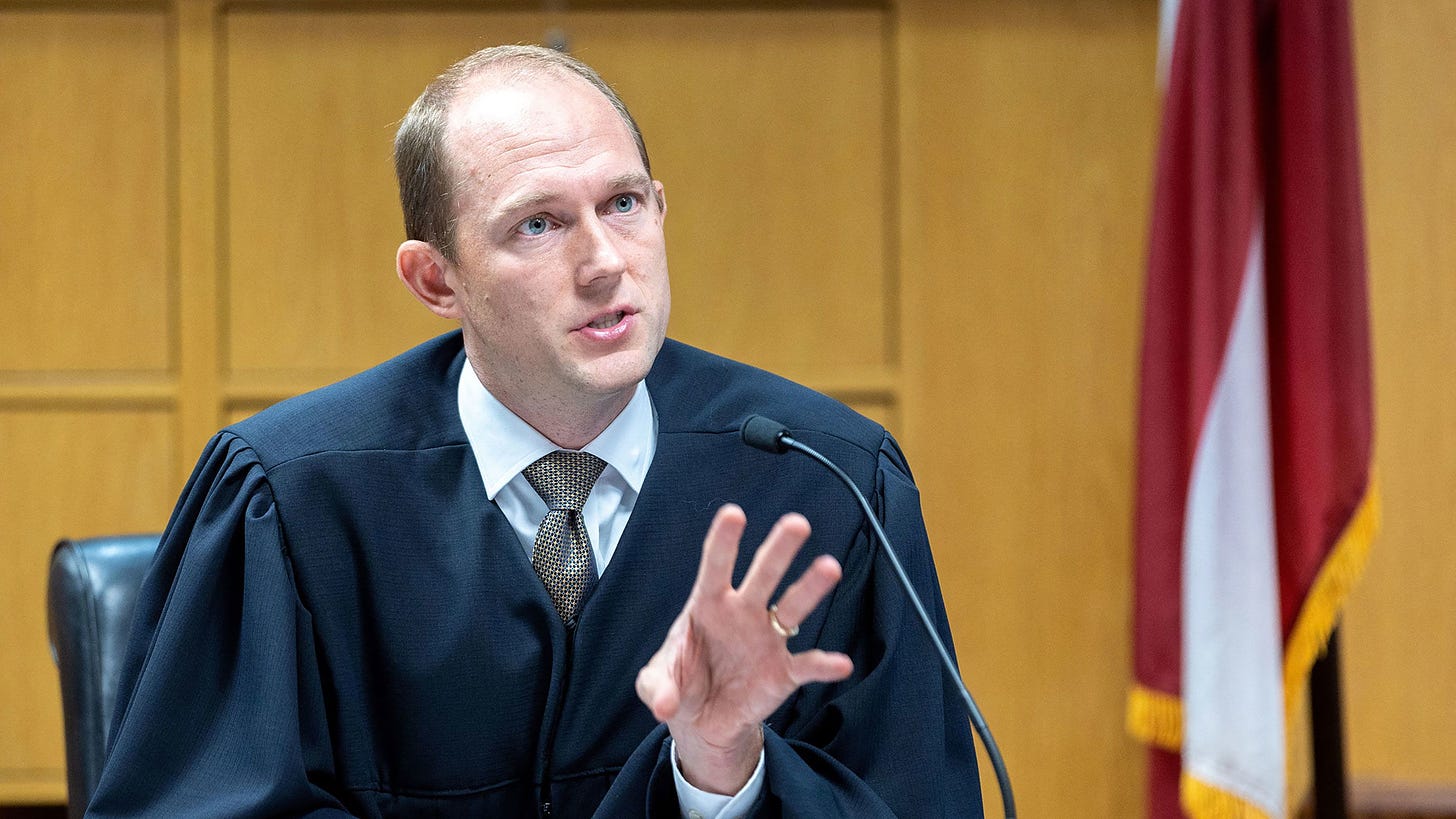Trump's Charge Count Drops from 91 to 89
Georgia Judge Dismisses Six Counts From RICO Indictment, Three of them Trump's
Today, in the Superior Court of Fulton County, Georgia, Judge Scott McAfee issued a decision regarding special demurrers1 presented by the defense in the case of the State of Georgia vs. Donald John Trump et al. The ruling focused on Counts 2, 5, 6, 23, 28, and 38 of the indictment, which were challenged by the defendants through the mechanism of special demurrer.
Special demurrers serve as a procedural tool allowing defendants to contest the sufficiency of an indictment's form by asserting the need for greater specificity. This procedural challenge is grounded in the constitutional mandates of Due Process and the Sixth Amendment, ensuring that an accused is adequately informed of the accusations against them. The ruling elucidates the legal principles governing the formulation of indictments, emphasizing the necessity of stating offenses with sufficient certainty to meet constitutional standards.
Judge McAfee's analysis underscores the legal principle that an indictment must be "perfect in form as well as substance," highlighting the judiciary's responsibility to scrutinize charging documents for compliance with these rigorous standards. Despite a liberal interpretation in favor of the State, the Court identified deficiencies in the indictment's specification of the oaths allegedly violated by the defendants.
This finding is rooted in the legal requirement that the terms of the oath violated must be "expressly prescribed" and clearly articulated within the indictment to satisfy due process concerns.
The dismissed charges, related to the contentious Raffensperger phone call, were challenged for failing to specify which oath of office the defendants allegedly violated.
The challenged counts related to allegations of solicitation of Violation of Oath by Public Officer, drawing upon the statutory provisions of O.C.G.A. §§ 16-4-7 and 16-10-1. The ruling delineates the statutory requirements for such charges, emphasizing the need for detailed allegations concerning the solicited felony's nature and commission. By granting the special demurrers, Judge McAfee concluded that the indictment failed to furnish the defendants with adequate information to prepare their defense and to delineate the specific constitutional provisions implicated by the alleged solicitation.
Importantly, the decision distinguishes between the standards applicable to charging documents and those pertinent to overt acts alleged within a conspiracy charge. The latter are not subjected to the same pleading standards as statutory offenses, underscoring a more lenient threshold for alleging overt acts within the conspiracy framework.
Judge McAfee's ruling highlights the intricate balance between procedural formalities and substantive rights within the criminal justice system. It reaffirms the judiciary's role in safeguarding defendants' constitutional rights through meticulous examination of indictments.
The decision also leaves open the possibility for the State to rectify the identified deficiencies, either through reindictment or appeal.
The ruling by Judge Scott McAfee, while significant, does not mark the conclusion of the legal proceedings against former President Donald Trump and his co-defendants. It’s important to recognize that the Fulton County District Attorney's office retains the ability to readdress these charges, potentially by re-indicting with greater detail or by appealing the decision.
The substance of the contentious January 2, 2021, phone call and its implications remain integral to the broader matrix of charges still intact within the indictment. This aspect, among others related to the alleged efforts to influence the 2020 election results in Georgia, persists unaffected by this ruling.
While this decision may temporarily narrow the scope of the indictment, the legal battle, underscored by complex legal and constitutional debates, is far from over, with the potential for reevaluation and reinstatement of charges looming on the horizon.
A special demurrer is a legal objection raised by a defendant, challenging the specificity of an indictment's language. It asserts that the indictment lacks sufficient detail to adequately inform the defendant of the charges and to prepare a defense, without necessitating proof of prejudice from the alleged deficiency†.




